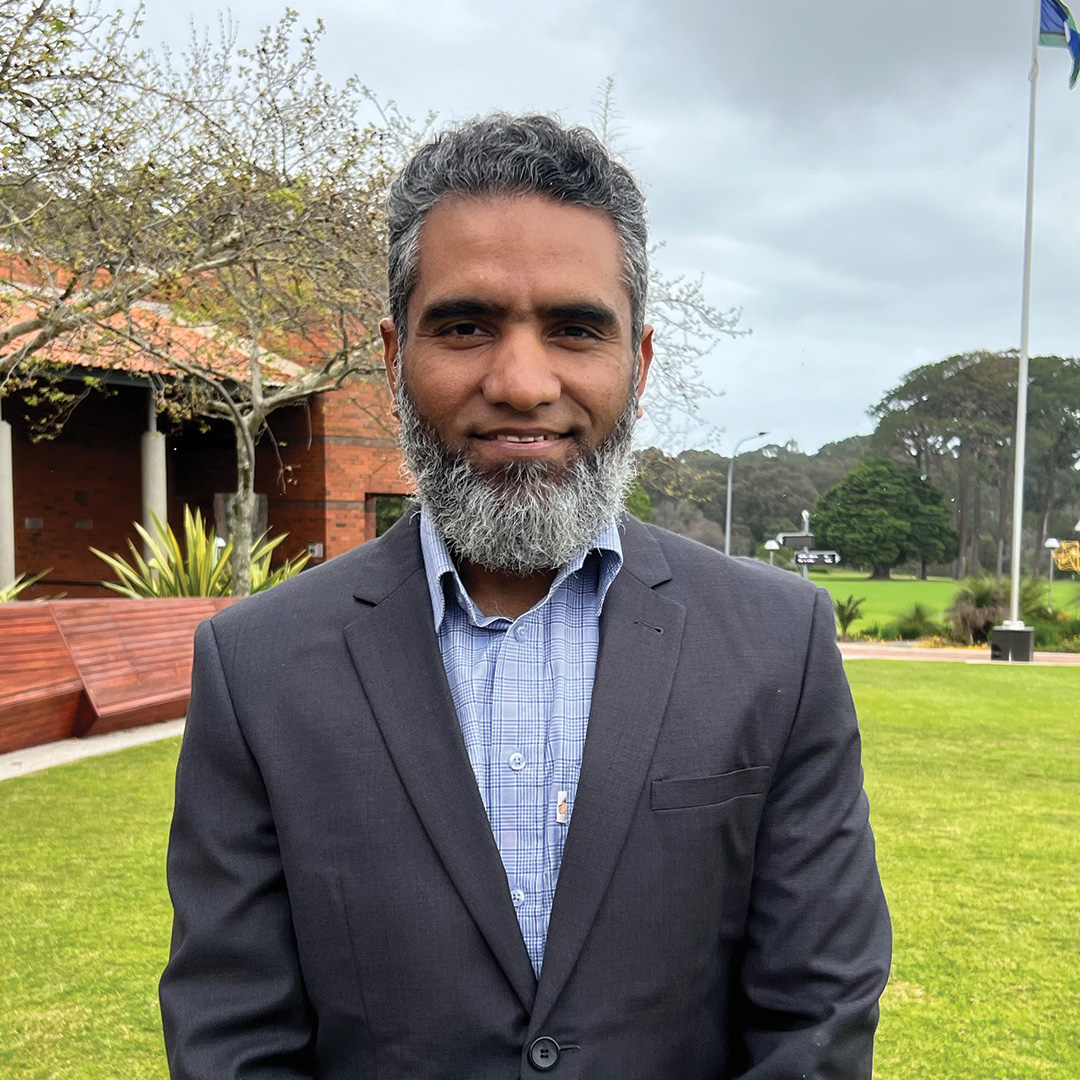For recent PhD graduate Mohammad Zulfikar Ali, his determination to “raise the voice of the human being” led to him putting his job as a judge on hold to travel 6,500 kilometres away to pursue his studies here at Curtin.
 Calling Bangladesh home, Ali grew up surrounded by friends and family who received very little pay for doing dangerous jobs that often resulted in injury or even death. This lit a fire within him to pursue a career where he could create real change in his community by uplifting the voice of the common people.
Calling Bangladesh home, Ali grew up surrounded by friends and family who received very little pay for doing dangerous jobs that often resulted in injury or even death. This lit a fire within him to pursue a career where he could create real change in his community by uplifting the voice of the common people.
Keeping this goal in mind, Ali worked his way up Bangladesh’s legal system, first through his studies, then as a lawyer, before he took the daunting but life-changing opportunity to become part of Bangladesh’s judiciary. On the frontline of where the law impacts the public, Ali witnessed how changing policies can make a real difference to those around him.
And so, in 2018, Ali made the bold decision to take leave from being a judge to pursue a PhD here at Curtin. His area of study? Seeking a civil liability framework within international law to find justice for workers in the shipbreaking industry in South Asia.
Having grown up near Bangladesh’s main shipbreaking hub, Ali was aware of how dangerous an industry it can be. With little to no safety standards and improper training for workers, the deconstruction of old ships in developing countries can be devastating for the workers who need these jobs to survive.
“If we can develop a system in which everyone is contributing to the ultimate goal [of] improving the standards of the people, providing justice for the people, that’s much better.”
As working towards a just and sustainable future was key to Ali’s PhD proposal, he wanted to make sure that he chose to study at a university that upheld that same goal. After doing some research, Ali found Curtin’s Faculty of Business and Law (FBL), which has a long history of contributing to progress on the United Nation Sustainable Development Goals (SDGs).
Ali found that his research area overlapped with one of the FBL’s priority targets, SDG 16, which aims to promote peace, justice and strong institutions. Hoping to bolster the shipbreaking industry for years to come, Ali proposed that they “have a system, an inclusive mechanism so that people are accountable.”
Figuring out what that system would be was the tricky part. As his PhD covered a complex area of law, Ali was quite relieved when he finally put together his proposed compensatory model, which ensures that all involved parties are accountable for the safety and ongoing livelihood of these shipbreaking workers.
“Many people have researched the shipbreaking industry before, but they mainly focused on the preventative model and the environmental justice, whereas they didn’t talk about the human rights, the human justice.”
Three and a half years later, Ali hopes that his PhD will be the first step in pushing for policy change to provide compensation for those who are injured or for the families of those who have died while working in the shipbreaking industry.
“It’s very important to raise the voice of the human being rather than other abstract things like [the] environment, climate change… We can raise the environmental issue through the eyes of the people who are suffering. That’s more effective.”
Though his graduation is just around the corner, Ali’s journey isn’t over yet. In the future, he hopes to become an academic teaching at Curtin Law School who encourages his students to think critically about the law.
He also remains determined to continue moving forward with his proposed policy framework to improve the lives of those working in the shipbreaking industry. In fact, Ali already has his foot in the door, having recently been invited to present his research at ACI’s 10th Ship Recycling Congress, which will be taking place in Amsterdam in February 2023.
Want to learn more about how researchers here at Curtin are making a difference? Explore how our dedicated researchers are driving change and innovation in a wide range of research areas.



